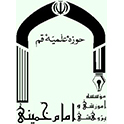Abstract:
In the Islamic and international legal system, interference in the internal affairs of states is prohibited based on the principle of non-interference. An exception has been made based on principles and criteria according to this principle. This study examines the most important principles of the legitimacy of intervention from the Islamic point of view on referring to jurisprudential and legal sources to explain and develop the concept of intervention by mentioning similar cases in the international legal system. The purpose of this study is to make greater compliance and interaction of the principles of intervention legitimacy with the existing laws in the international legal system and the emerging issues in the world today. This study is introduced principles of human dignity, the jihad of invitation, defense of the other people, and the principle of collective security, defensive jihad or legitimate defense and intervention according to the invitation or contract as the most important principles of the legitimacy of intervention by using descriptive, and analytical study. One of the duties of the rulers of the Islamic society is to deal appropriately with the political opposition. The short period of Amir al-Mu'minin Ali's rule was full of problems and issues due to the special circumstances of the society of that day, in which the political opponents of the Imam were the main protagonists, as most of his rule was devoted to confronting these groups. The purpose of this study is to provide a model in accordance with the Imam's style of dealing with them in different situations, while respecting and recognizing the rights of the opposition and observing important principles of governance, have always tried to guide and return them to society. This study tries to disagreement and criticism of the governing religion is considered as a right, not to be considered a crime, and to regard the issue from a legal point of view by using descriptively examining and analyzing the thematic content of important historical sources, the practical life of the Imam in particular. At the same time, the rights of political opponents are recognized by the constitutions of Iran and most countries.
Machine summary:
Principles of Legitimacy of Intervention in Islam and theInternational Legal System ( Jabbar Mohammadi Bolbanabad / Master of Jurisprudence and Fundamentals of Islamic Law Islamic Azad University, Central Tehran Branch jabarmohammadi@gmail.
Rethinking the Effects of Illegitimate Lineage of Imamites Jurisprudenceand Legal - Judicial Iran ( Seyed Jalal Mousavinasab / Faculty member of the Department of Jurisprudence and Fundamentals of Islamic Law, Payame Noor University mousavinasab@pnu.
Critique of Human Dignity in the Declaration of Human Rights basedon the Views of Ayatollah Javadi Amoli Fatemeh Sadat Mousavi Ranani / PhD Student in Islamic Philosophy and Theology, Shahid Rajaei University of Tehran Received: 2021/02/04 - Accepted: 2021/05/13 adatmoosavi20@yahoo.
com Received: 2021/01/17 - Accepted: 2021/05/29 Abstract The most important factors of difference in criminalizing behaviors, punishments, and the manner of their implementation are differences in the type of attitude of Islam and material schools towards human beings, law, right to life, freedom, and fundamental human rights.
The contradiction that seems to exist between them and certain punishments is eliminated, by carefully examining the semantics of each of the fundamental human rights and considering their origin, this study uses a descriptive-analytical method to explain the rights of "life, dignity, and freedom" from a legal and jurisprudential point of view and indicates that these punishments have been imposed in order to preserve and realize these natural human rights and should be implemented.
The Rights of Political Opponents Considering the Life Story of Government of Amir al-Mu'minin and Its Reflection in the Constitution of the Islamic Republic of Iran ( Fatemeh Ghodrati / Assistant Professor Yasouj University f.

(پژوهیار,
,
,
)

